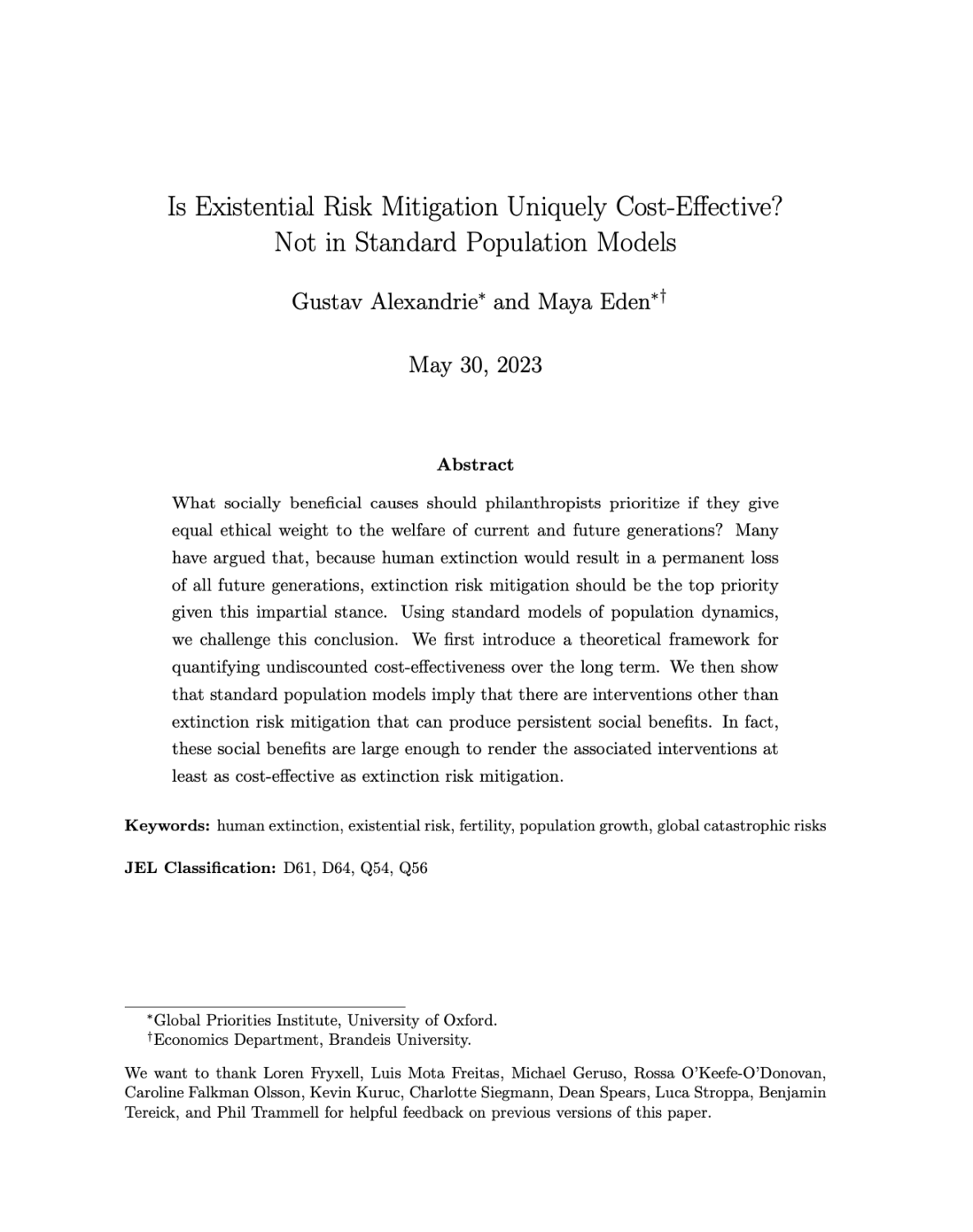Is Existential Risk Mitigation Uniquely Cost-Effective? Not in Standard Population Models
Gustav Alexandrie (Global Priorities Institute, University of Oxford) and Maya Eden (Brandeis University)
GPI Working Paper No. 5-2023
What socially beneficial causes should philanthropists prioritize if they give equal ethical weight to the welfare of current and future generations? Many have argued that, because human extinction would result in a permanent loss of all future generations, extinction risk mitigation should be the top priority given this impartial stance. Using standard models of population dynamics, we challenge this conclusion. We first introduce a theoretical framework for quantifying undiscounted cost-effectiveness over the long term. We then show that standard population models imply that there are interventions other than extinction risk mitigation that can produce persistent social benefits. In fact, these social benefits are large enough to render the associated interventions at least as cost-effective as extinction risk mitigation.
Other working papers
The unexpected value of the future – Hayden Wilkinson (Global Priorities Institute, University of Oxford)
Various philosophers accept moral views that are impartial, additive, and risk-neutral with respect to betterness. But, if that risk neutrality is spelt out according to expected value theory alone, such views face a dire reductio ad absurdum. If the expected sum of value in humanity’s future is undefined—if, e.g., the probability distribution over possible values of the future resembles the Pasadena game, or a Cauchy distribution—then those views say that no real-world option is ever better than any other. And, as I argue…
The scope of longtermism – David Thorstad (Global Priorities Institute, University of Oxford)
Longtermism holds roughly that in many decision situations, the best thing we can do is what is best for the long-term future. The scope question for longtermism asks: how large is the class of decision situations for which longtermism holds? Although longtermism was initially developed to describe the situation of…
Numbers Tell, Words Sell – Michael Thaler (University College London), Mattie Toma (University of Warwick) and Victor Yaneng Wang (Massachusetts Institute of Technology)
When communicating numeric estimates with policymakers, journalists, or the general public, experts must choose between using numbers or natural language. We run two experiments to study whether experts strategically use language to communicate numeric estimates in order to persuade receivers. In Study 1, senders communicate probabilities of abstract events to receivers on Prolific, and in Study 2 academic researchers communicate the effect sizes in research papers to government policymakers. When…

